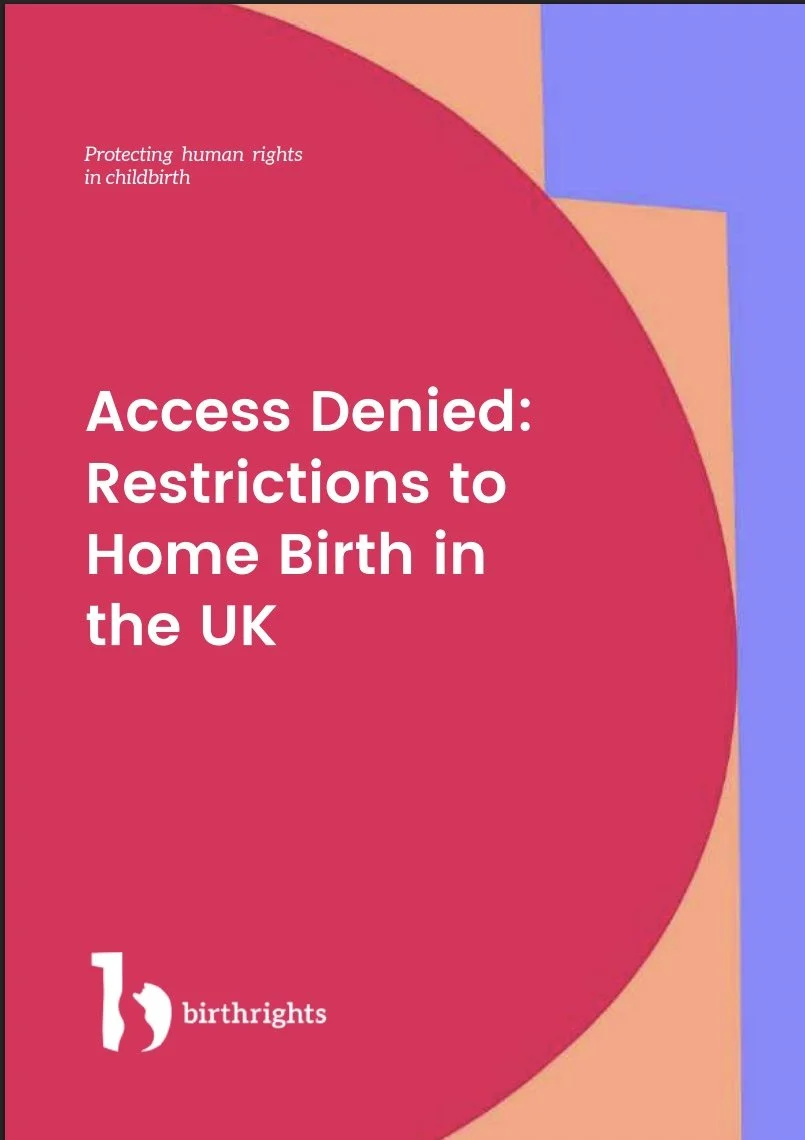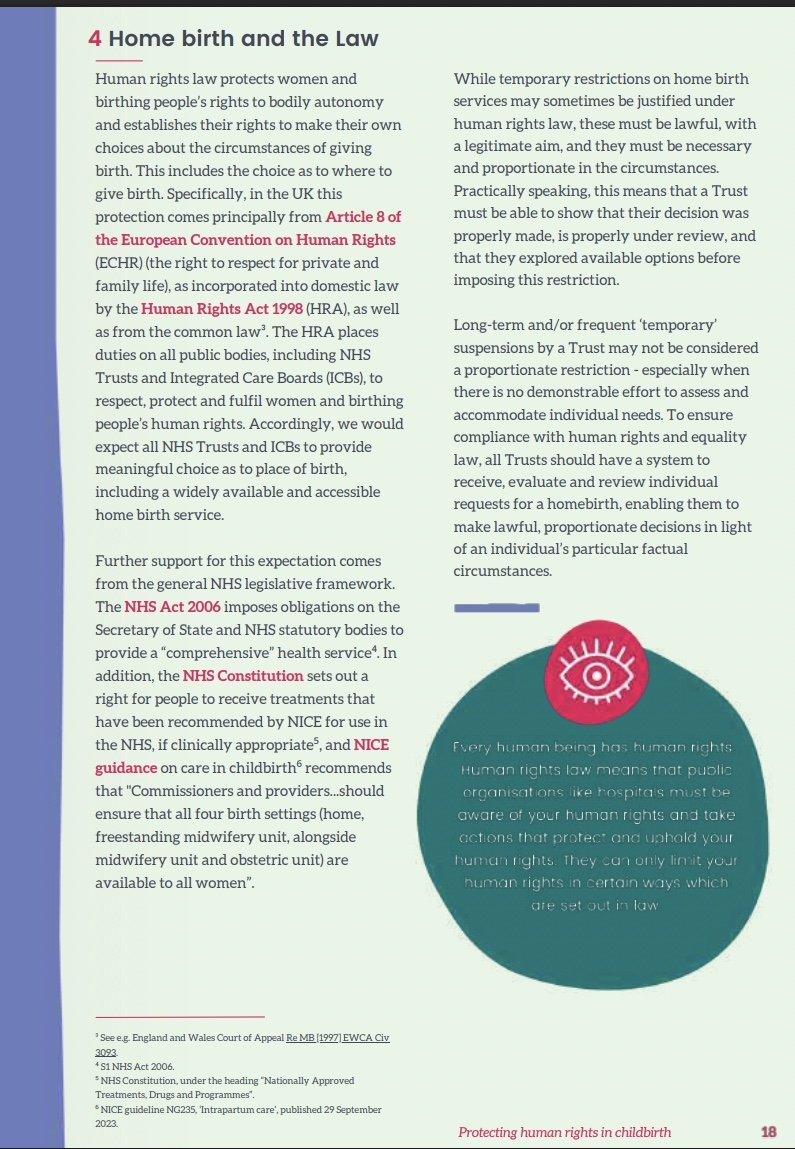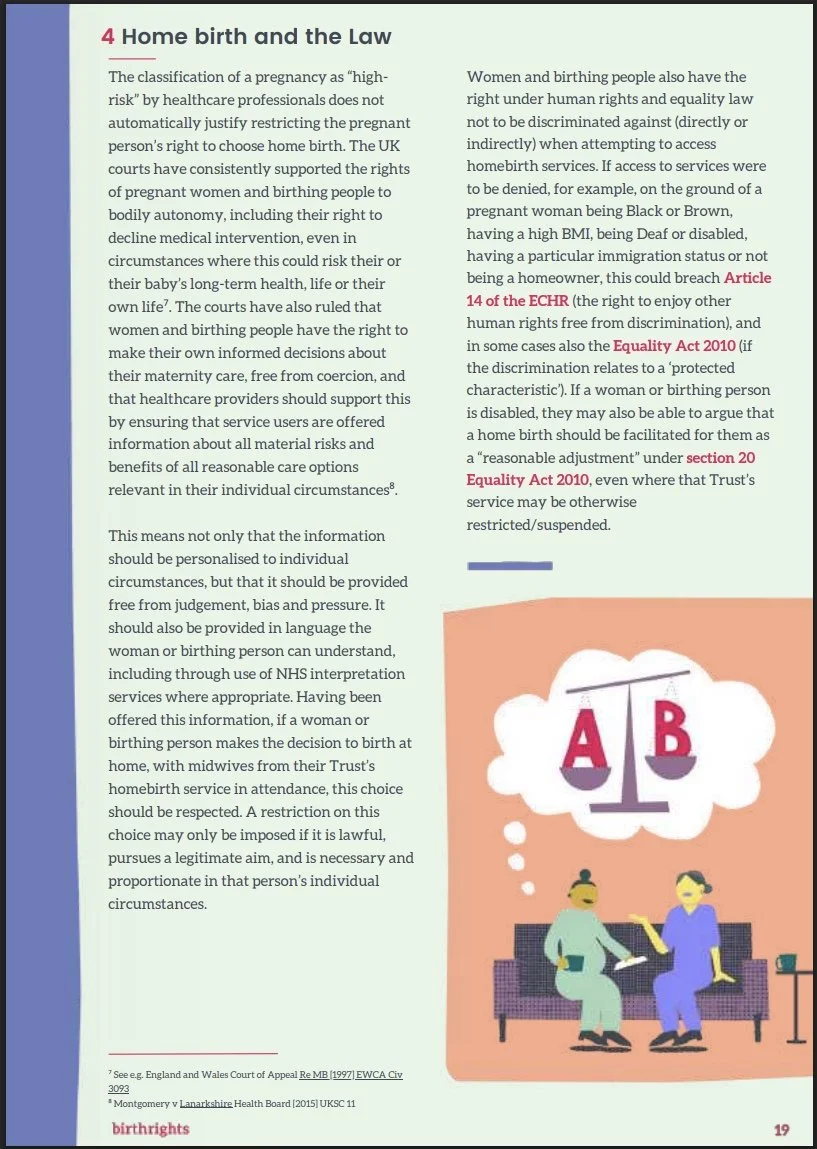When Maternity Services Feel Unstable — What Women Can Do Now
Taking back confidence, calm and clarity when services are under strain.
With Gloucestershire’s home-birth midwifery support currently suspended
— and labour wards overcrowded,
women being redirected to neighbouring hospitals,
and staff stretched thin
— it’s understandable that many women are asking:
What’s the safest thing to do now?
If you’re preparing for the birth of your baby, here’s what you need to know.
1. First — Breathe.
You Have Options.
No seriously
- take a deep healing & nourishing breath now.
Focussing on your breath helps you to notice and release tension from your body.
Which supports your placenta & baby with extra oxygen flow.
This is one of the reasons pregnancy yoga has sooo much evidence around it
- including less preterm birth, shorter labours and less complications!
Remember that YOU are infinitely powerful and your body is infinitely wise.
Women have been birthing babies for as long as time itself.
YOU are the product of thousands of years of evolution.
Every female in your lineage birthed…
your mother, her mother,
her mother before that
stretching right the way back through time,
Yes, staffing shortages are worrying.
But there are still emergency teams,
ambulance crews and air ambulance
and neighbouring hospitals ready for anyone who needs urgent care
The system may be under pressure,
but there are skilled people available when emergencies arise.
But normal birth is not an emergency
What you can do
— right now —
is stack the odds in your favour
And the good news is:
there’s a lot you can do to make your birth safer and smoother
You perhaps already know this
- because by booking a home birth
you’ll know that you’re much much less likely to suffer birth injuries,
and need unnecessary interventions,
you are less likely to bleed heavily,
and less likely to be violated with
procedures that you do not consent to.
You deserve to feel safe when you birth.
2. Nourish Your Body for Birth
Your body and baby thrive when you eat well, rest deeply, and stay hydrated.
Even though no diet can guarantee a perfect birth, you can make a huge difference to your outcome by:
Eating simple, whole, unprocessed foods
and cutting back on sugar.Drinking plenty of water -
why not collect St Anthony’s Spring Water,
on your doorstep in Gloucestershire / Forest of Dean?Including good fats and protein,
especially from animal sources in the third trimester
to support your placenta and baby’s growth.
A well-nourished body reduces the risk of complications
such as:
And it gives you the stamina & the building blocks you’ll need for the physical work of labour and recovery afterwards.
I’ve written an inspiring article about all the nutrients & why they are important..
Or you can just order the bible of nutrition in pregnancy..
3. Place of Birth — Plan Intentionally
YES you can still absolutely still PLAN to birth at home!
Your probably already know that even just planning a home birth,
reduces the likelihood of intervention
— such as induction, forceps, caesarean,
bleeding after birth and experiencing obstetric violence…
That’s because when women birth in calm,
familiar, safe and respectful environments,
even just starting out in that environment -
their hormones flow optimally and labour tends to progress more smoothly.
A straightforward,
low-tech vaginal birth remains the
safest and healthiest route
for most women and babies.
But when NHS systems fall short, personal care is often lost.
Many midwives leave - they can no longer operate under the current regime.
The ones left are forced to rely on machines,
numbers and protocols rather than presence
— and this does not serve anyone well.
Behind the scenes we (myself and other local & national birth advocates) have been putting pressure on the Trust and the ICB (Commissioner's) to bring in Independent Midwives
to plug their gaps:
Zest is a community organisation who arrange insurance and contracts
they have a proven track record of success across multiple NHS Trusts and Health Boards.
Their model fulfils every requirement necessary —governance, insurance, oversight,
and community partnership
—and can restore home-birth provision safely and quickly.
Gloucestershire NHS Trust have been given the money for safe staffing
but are failing to use it.
You have the power within you to create the birth of your choice
And to improve choices for the women yet to come.
Your Home Birth Options Now
Despite what Gloucestershire NHS Trust are saying
- you still have a number of options for your planned home birth right now.
A - The Scratched Record Technique
This approach has been shown to work in many parts of the UK.
In essence, it means calmly standing your ground
— and more often than not, a midwife is found.
It reminds hospital trusts that they cannot simply withdraw agreed care or pressure women out of their lawful choices.
And this isn’t just about you, or even this birth —
it’s about every woman who comes after.
Each time someone holds firm, it sends a clear message:
women know what is best for themselves and their babies,
and they will not be coerced into giving birth in a place that doesn’t feel safe.
The Scratched Record Protocol :
Find a strong, calm support person to speak on your behalf during labour
— this might be me, or another trusted doula or birth-keeper.
When labour begins, your support person calls triage and explains that you are booked for a home birth, are now in labour, and would like a midwife to attend.
If the hospital responds with
“She needs to come in,”
your support person simply repeats,
calmly and consistently:
“She’s not coming in.
She’s booked for a home birth
and would like a midwife to attend.”
If they insist
“We don’t have a midwife available,”
your support person continues:
“She is staying at home
— it’s not safe for her to move at this stage of labour.
Please can you find a midwife.”
And so the conversation circles,
calmly but firmly,
until a midwife is often found.
If, in the end, one cannot attend,
you can still assess how you feel and decide whether to stay home or transfer in
— but either way, you have exercised your right to plan a home birth.
B. Writing Letters
There are several ways you can write in and make your voice heard — whether you’re already full term or still have a few weeks or months to go.
The Trust may say the suspension is “for two weeks only,” but don’t be misled.
Aveta Birth Centre was also said to be closed “temporarily” for two weeks
— that was three years ago, and it still hasn’t reopened.
If your estimated due date falls within the next six months, don’t wait.
Now is the time to act.
I’ve created a set of ready-to-use template letters to make it simple.
All the key email addresses are included — just copy, paste, personalise, and send.
Don’t overthink it — just do it.
You and your baby deserve safe, high-quality support.
Remember, home birth is not a luxury
— it’s actually cheaper for the NHS than hospital birth.
You’re not asking for more than you deserve.
By accepting less, we lower the standard for every woman who comes after.
C. Switching Trusts to Access Home Birth Care
If you live near the border of Gloucestershire, you can approach any neighbouring NHS Trust that feels close and reasonable to you — for example, Wye Valley (Herefordshire), Powys, Bristol, or Worcestershire — and request to transfer your maternity care to them so that you can still plan a supported home birth.
You have every right to ask for this.
Under NHS England’s policy on patient choice and Article 8 of the Human Rights Act, women have the right to choose where to give birth and who provides their care. When a service has been withdrawn — such as Gloucestershire’s home birth team, or the long-term closure of Stroud Birth Centre — you can lawfully seek an alternative provider who can meet your needs.
This is not an unusual step; other families in similar situations have successfully transferred to neighbouring Trusts when local home birth services were suspended.
Below is a template letter you can adapt and send to the Head of Midwifery in a nearby Trust.
You can personalise it with your own reasons why hospital birth isn’t suitable for you, and why a home birth with qualified midwifery support is the safest and most appropriate option for your circumstances.
D. Ambulance Crew
You are fully entitled to remain at home, as already discussed.
If you’d like some medical backup, one option is to wait until you’re in the pushing stage,
then have your support person call 999 and explain clearly that it’s not an emergency,
but that you do not wish to birth unassisted.
Some ambulance crews are wonderfully calm and respectful,
familiar with supporting births at home.
Others may arrive in full
“emergency mode,”
which can feel intrusive or disruptive.
This is where having a Doula, Birth-Keeper, or another experienced supporter can make all the difference — someone who can meet the crew at the door,
explain that all is well,
and help maintain a calm, grounded environment.
Of course, there are no guarantees
— just as in hospital,
any professional can become anxious and intervene unnecessarily.
But at home, you have a far greater sense of control over your surroundings, your birth space, and your experience.
4. Continuity of Support
— Even if the NHS Can’t Provide It
Just because Gloucestershire’s NHS continuity models are paused.
it doesn’t mean you can’t create your own continuity of care.
Consider hiring a Doula, Birth-keeper or Independent Midwife.
Doulas & Birth-keepers aren’t medical professionals,
but the evidence is clear:
having a trusted, continuous companion during birth greatly improves outcomes
— fewer interventions, shorter labours, and higher satisfaction.
Independent midwives, meanwhile,
bring professional skill and calm expertise in physiological birth
— especially valuable when NHS home-birth cover is unavailable.
Cost Comparison
Doula / Birth-Keeper: £1,000 - £3,000
Independent Midwife: £5-10,000
Most new parents spend thousands preparing for their baby’s arrival — from nursery furniture, slings, and prams to clothes, nappies, and all the little extras that add up quickly. Studies suggest the average UK family spends between £4,000 and £9,000 in the first year alone, often boosted by gifts, baby showers, and well-meaning purchases from friends and relatives. Instead of receiving piles of newborn clothes or duplicate toys, many parents now choose to set up a crowdfund — inviting loved ones to contribute towards their baby’s safe passage into the world and the mother’s strong, supported start to parenthood.
5. Know Your Rights — and Your Legal Options
If home-birth midwifery support is withdrawn, you can still choose to birth at home.
It is legal to do so.
If you ever need emergency help,
you can call 999
— ambulance crews are trained to support births and transfer when needed.
Birth is a physiological process.
In most cases,
it unfolds safely when women feel calm, supported, and undisturbed.
I’m linking the report from Birth Rights
and the section on Home Birth and The Law
6. Take Radical Responsibility
Right now, it’s not possible to hand full responsibility to “the system.”
is it ever?
You are the expert in your body and baby.
Embrace this as a time to reconnect with your instincts
— your mama bear wisdom.
Learn everything you can, but most of all learn to tune in:
Take an antenatal or hypnobirthing course.
Join a pregnancy yoga or aqua-natal class.
Read positive birth stories,
|listen to podcasts, and understand what physiological birth looks like.
Knowledge truly is power.
Women who learn to trust their bodies often know when something is off
— and when everything is perfectly fine.
Doubts ARE normal too I know this is a bit of an oxymoron, but trusting our instincts takes practices.
Usually if you are wondering is it ok / how will I know / what if I don’t???
THIS sounds like anxiety. But when you know - YOU KNOW.
Always listen to that quiet inner voice.
7. Calling for Change
While we prepare ourselves individually, the bigger picture can’t be ignored.
Home-birth and continuity models need investment, not withdrawal.
I continue to call on Gloucestershire’s maternity teams to:
Employ Independent Midwives to fill service gaps.
Use existing safe-staffing budgets to rebuild continuity and confidence.
Be transparent with families about what support is available and when it will return.
Birth is Powerful — and So Are You
You can’t control the system, but you can take control of your preparation, knowledge, and mindset.
Whether you birth at home, in a unit, or in hospital, you deserve to feel safe, supported, and informed.
“The true measure of any society can be found in how it treats its most vulnerable members.”
— Mahatma Gandhi
I want you to know I am here, along with an army of passionate women who beleive in birth,
believe in midwives and believe in YOU.
About the Author
Emma Gleave is a Birth-keeper, Doula, Educator, and founder of Emma’s Antenatal.
Based in the Forest of Dean, she advocates for safer, more compassionate maternity care through continuity, informed choice, and community support.
Her work spans from local and virtual birth support to national research and campaigns on maternity policy and women’s rights in birth.














